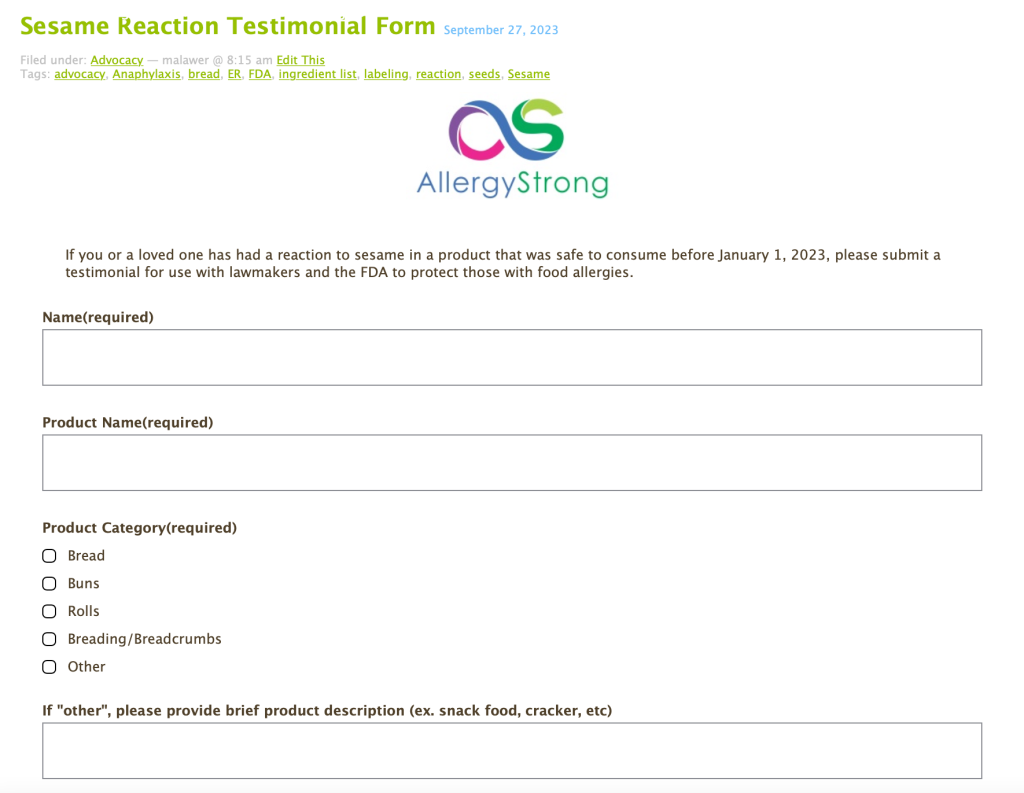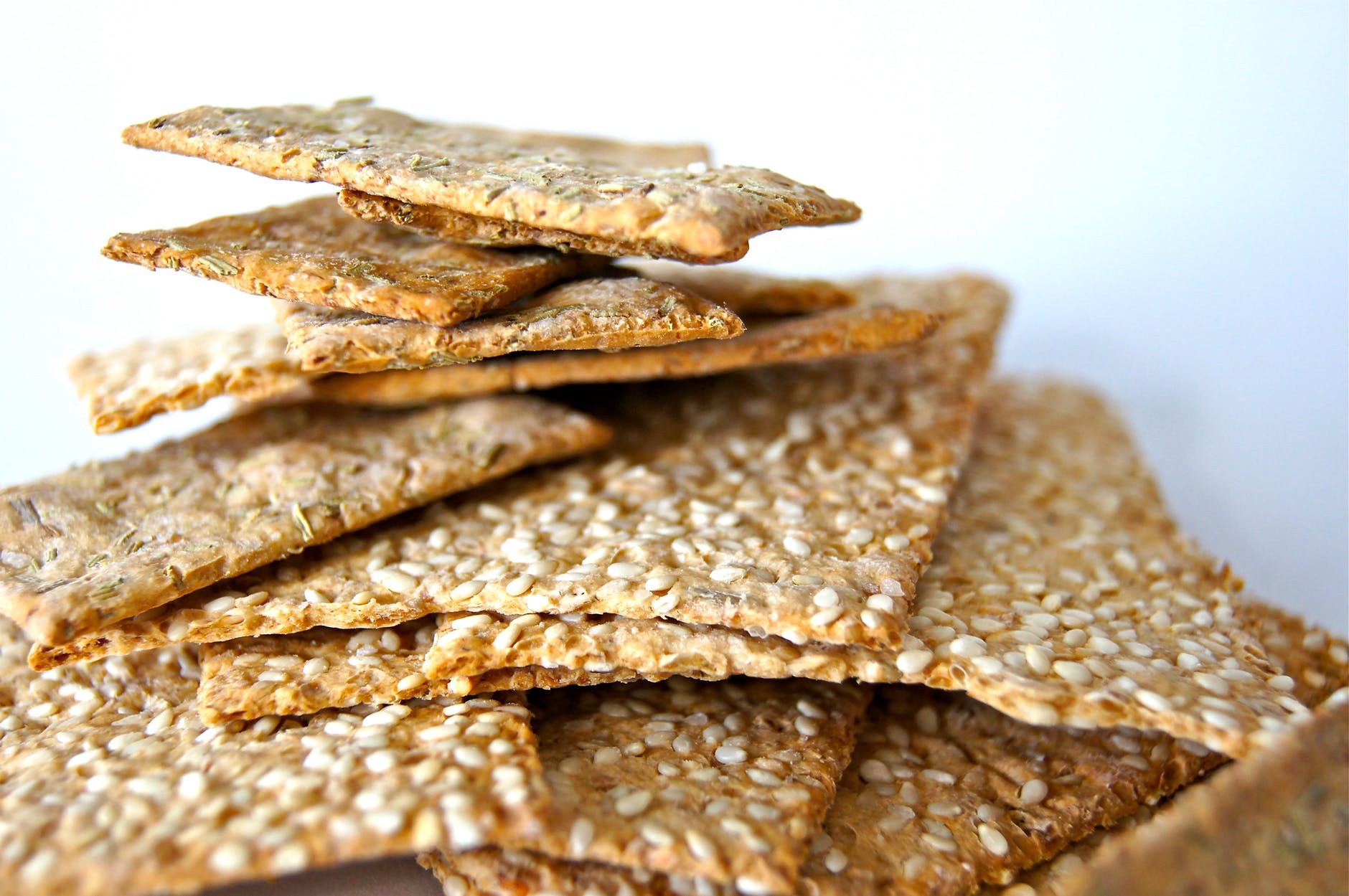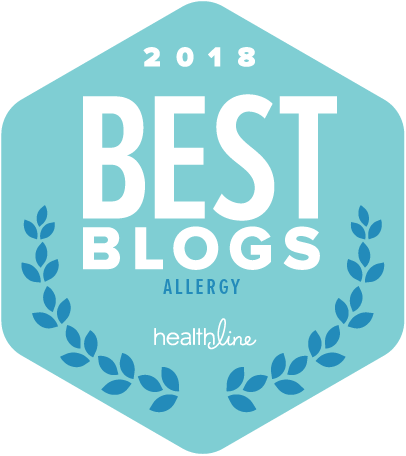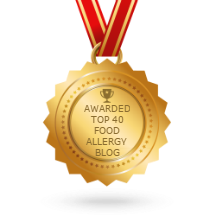If you or a loved one has experienced an allergic reaction due to sesame added food products since January 2023, we need to hear from you!
As you may be aware, some food manufacturers have begun adding small amounts of sesame to previously safe food products. This addition has mainly been seen in bread products (including sliced bread, buns, rolls, bread crumbs, croutons, etc) and typically found in the form of sesame flour or sesame oil. This issue has severely limited the number of safe bread products for those with a sesame allergy. Not only has this affected individuals and families in the supermarket, the changes are being made by large scale suppliers like those that cater to school systems, universities, restaurants, hotels, event spaces, and hospitals.
Food manufacturers, particularly bakers, are adding sesame in response to the FASTER Act (Food Allergy Safety, Treatment, Education, and Research Act – passed in April 2021). Among other things, this was designed to protect individuals living with food allergies by making it easier for them to identify what is in the food they buy and eat. The FASTER Act declared sesame as a high priority allergen (“Top 9” allergen) which requires it to be clearly labeled by its common name on ingredient lists. Sesame can no longer be hidden under general terms such as “spices,” “natural flavors,” or “flavoring” and it must be labeled by its recognizable name.
Since the law was enacted on January 1, 2023, there have been reports of manufacturers adding trace amounts of sesame (typically sesame flour) to their products. Unsurprisingly, many people are having reactions. If you or someone you know has had a reaction to the addition of sesame in a product, please read on.
The addition of trace amounts of sesame has occurred under the radar of many, including those in service industries as well as patients themselves. A change in recipe often takes place without warning or fanfare, making a brand that was previously safe suddenly unsafe for those with food allergies. Not only are manufacturers adding sesame, but they are adding a more potent form of sesame – as ground sesame (such as in flour or paste) and sesame oil are more potent than whole sesame seeds.
AllergyStrong and other food allergy advocacy groups are working tirelessly to reverse this manufacturing practicing and preserve the spirit of the FASTER Act which was to protect people with food allergies. But WE NEED YOUR HELP! If you, a friend, or a loved one has had a reaction to the addition of sesame to a product, we would love to hear your story.
- Submit a brief testimonial form to AllergyStrong via Allergy Shmallergy. Or you may request and submit a short testimonial form from AllergyStrong at: erin@allergystrong.com
- IMPORTANT: Please ALSO report your reaction to the FDA directly through their MedWatch online submission form.
When appropriate, we will share these testimonies anonymously with lawmakers and the FDA to roll back the addition of sesame in food products and protect everyone living with sesame and other food allergies across the U.S.
THANK YOU!

































